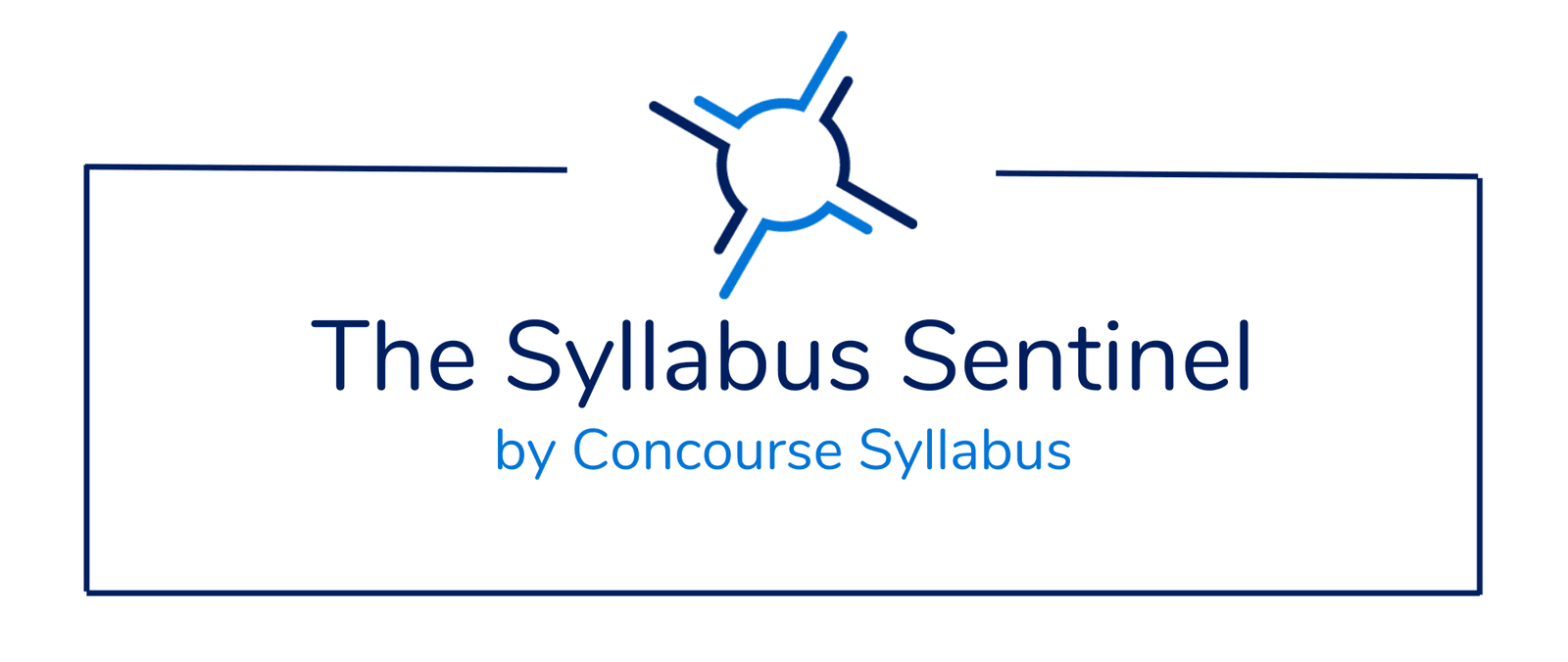
December 2024 - The 2024 Recap
It’s hard to believe it’s the end of the year already. As we reflect on the past 12 months, so much has happened in the realm of higher education. In an everchanging atmosphere, all of us have had to grow and adjust to overall shifts, policy changes, and new mandates. But you’ve done it! In this edition, we’re rounding up our top-5 favorite syllabus-related articles from the year (believe us, it was hard to narrow it down after such a great year). Thank you for joining us on this journey. We are beyond excited to continue to bring you the latest syllabus and curated higher ed news in the new year.
In this edition:
- What’s the Key to Lifelong Learning? A Good Syllabus.
- Mental Health Check
- Accessibility Needs in Online Courses
- No More Student Complaints? A Professor’s Dream.
- Improving Student Engagement
It’s hard to believe it’s the end of the year already. As we reflect on the past 12 months, so much has happened in the realm of higher education. In an everchanging atmosphere, all of us have had to grow and adjust to overall shifts, policy changes, and new mandates. But you’ve done it! In this edition, we’re rounding up our top-5 favorite syllabus-related articles from the year (believe us, it was hard to narrow it down after such a great year). Thank you for joining us on this journey. We are beyond excited to continue to bring you the latest syllabus and curated higher ed news in the new year.
In this edition:
What’s the Key to Lifelong Learning? A Good Syllabus.
Mental Health Check
Accessibility Needs in Online Courses
No More Student Complaints? A Professor’s Dream.
Improving Student Engagement
What's the Key to Lifelong Learning? A Good Syllabus.
Alex Prezeau, a recent graduate of Columbia University, was looking for a way to maintain a focus on learning beyond the university, “in a world where education won’t be our primary focus anymore.” Her quest led her to combine the idea of a syllabus, with key information like a schedule and learning objectives, with a zine - a format that encourages “spontaneity, passion, and freedom.” You can read more about the workshop she created and one student’s experience creating her own syllabus zine on Bwog, a student-led new site for Columbia students
Mental Health Check
Mental Health Check
A growing understanding of the value of opportunities for students to rest and de-stress has led to 12 states allowing “mental health days” for K-12 students. Colleges typically leave this kind of policy to individual instructors. Jay Sheehan, a professor at San Diego State University, has incorporated three dedicated mental health days into his class syllabus, providing students with the opportunity to prioritize themselves and their own care. He encourages them to do “whatever it is that would bring them some sense of joy for 90 minutes.” They then submit a short essay reflecting on how they used each mental health day, which has led to “extraordinarily positive” results.
Accessibility Needs in Online Courses
A study revealed that students who require accommodations for learning tend to prefer online learning to traditional in-person classes. In order to provide these students - and all students - with the access, tools, and information they need to properly learn, it’s important to ensure that online courses receive the accessibility attention that they need, including a syllabus that provides clear information for all learners).
No More Student Complaints? A Professor's Dream.
Dr. Jennie Young, an associate dean at the University of Wisconsin, shared her top 10 ways to avoid student complaints. Her #3 recommendation stood out to us for obvious reasons: “Stop saying, ‘It’s in the syllabus.’” While it’s a variation on our favorite phrase, we have to agree. Instead, create syllabi that are accessible, have clear expectations, and provide concise but clear expectations so you don’t have to say it!
Improving Student Engagement
Providing an engaging course that goes beyond just textbook work and essay creation can bring the course to life for students who need that extra boost. The Chronicle discusses this “transactional” view of college education and how experiences and skill sets provide long-term stability in their field. P.S.: Concourse makes it easy to add assignments (and more) into the syllabus, regardless of what the assignment is.

